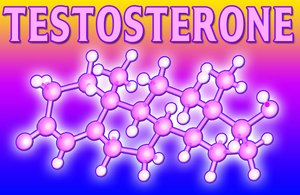
Testosterone gives people an inflated ego that makes us overconfident in our opinions and dismissive of others, according to a study conducted by the Wellcome Trust Centre for Neuroimaging at UCL (University College London). The conclusions might shed light on how group decisions are affected by influential individuals.
Video Link: https://vimeo.com/412159555
Video Download: Click Here To Download Video
Video Stream: Click Here To Stream Video
It also suggests that testosterone might make people more stubborn when making future decisions and unwilling to compromise with others in the group.
Thus this spectrum of behaviors can be interpreted differently by different people. But one thing seems to be sure — men with higher testosterone appear to be, on average, more successful in life.
Group versus Individual or Collective Versus Minority of One
Problem-solving in groups can enable groups to arrive at more beneficial decisions than individual decisions. Every individual in the group has unique expertise and experiences that can synergize the group's thought process.
However, there is a caveat: if the group is comprised of only like-minded individuals, there is the danger of uncritical discussions that often lead to groupthink...with less-than-desirable results.
Evolution seems to favor a hierarchical structure; lone-hunting animals are less likely to survive than pack animals with an alpha leader.
Testosterone is linked with the alpha leader, as any person put into a position of power will tend to have their increase in this androgen hormone naturally.
Oxytocin versus Testosterone: Science Takes Hold
Attempts to understand the biological mechanisms behind group decision-making have centered on promoting cooperation. Studies have shown that people receiving a dose of oxytocin hormone tend to be more cooperative.
In a recent study published in the journal Proceedings of the Royal Society B, researchers have demonstrated that the hormone testosterone has the opposite effect — making people more ego-driven and uncooperative.
The tensions between cooperation and individuals operating in behalf of their  own have created a complex interaction that soft scientists studied: sociologists and psychologists, from an external observation point, but often never looking at the chemical interaction.
own have created a complex interaction that soft scientists studied: sociologists and psychologists, from an external observation point, but often never looking at the chemical interaction.
Applying the hard sciences of medicine, physiology, chemistry, and biology, we are finally beginning to unravel the importance of testosterone and why it gives people in business and life a distinct advantage in determining outcomes.
However, there can also be distinct disadvantages as we explore both sides of low versus high testosterone.
Testosterone and Women's Clinical Study
Dr. Nick Wright and colleagues at the Wellcome Trust Centre for Neuroimaging at UCL conducted a series of tests using 17 pairs of female volunteers who had never met.
The trial occurred over two days, a week apart. On one of the days, both volunteers were given a testosterone supplement; on the other day, they were given a placebo.
Both women sat in the same room and viewed their screens during the experiment. Both subjects saw the same thing.
First, in each trial, they were shown two images, one of which was a high-contrast target — and they needed to decide individually which model included the mark.
If they both concurred with their individual choices, they received feedback and moved on to the next trial.
 But if they disagreed, they were asked to discuss their differences with their partner and reach a joint conclusion. One of the pairs then enters this mutual decision.
But if they disagreed, they were asked to discuss their differences with their partner and reach a joint conclusion. One of the pairs then enters this mutual decision.
The researchers discovered that, as anticipated, cooperation allowed the group to perform way better than the subjects alone when they had only received the placebo.
But, when given a testosterone supplement, the benefit of cooperation was dramatically lowered.
Higher testosterone levels were linked with individuals behaving as self-centered and favoring their conclusions over their teammates.
Interesting Conclusion About Testosterone
"When we are making decisions in groups, we tread a fine line between cooperation and self-interest: too much cooperation and we may never get our way, but if we are too self-orientated, we are likely to ignore people who have real insight," explains Dr. Nick Wright.
"Our behavior seems to be moderated by our hormones — we already know that oxytocin can make us more cooperative, but if this were the only hormone acting on our decision-making in groups, this would make our decisions very skewed.
on our decision-making in groups, this would make our decisions very skewed.
"We have shown that, in fact, testosterone also affects our decisions, by making us more egotistical.
"Most of the time, this allows us to seek the best solution to a problem, but sometimes, too much testosterone can help blind us to other people's views.
This can be very significant when we are talking about a dominant individual trying to assert his or her opinion in, say, a jury."
Testosterone is involved in a broad range of social behaviors. For example, in chimpanzees, testosterone levels explode before a confrontation or a fight.
Studies have determined that elevated testosterone levels are linked with greater antisocial behavior and aggression in female prisoners. Researchers believe these findings reflect testosterone's role in increasing the motivation to control others and increasing egocentricity.
(It might be noted that testosterone elevates one desire to climb higher in the pecking order for which they exist or to climb to higher positions of power in a particular setting).
Commenting on the findings, Dr. John Williams, Head of Neuroscience and Mental Health at the Trust, said: "Cooperating with others has obvious advantages for sharing skills and experience, but we know it doesn't always work, particularly if one alpha male or alpha female dominates the decision-making.
This result helps us understand at a hormonal level the factors that can disrupt our attempts to work together."
The Wellcome Trust funded this Testosterone Clinical Study.
*Testosterone is naturally secreted in men and women, and testosterone levels are correlated with essential behaviors (e.g., antisocial behavior) in both men and women.
For the dose size given experimentally, in women, this markedly increases their testosterone from its low baseline level. In men, however, the situation is more complicated: men already have high baseline levels of testosterone, so  giving such doses will decrease their testosterone production. This feedback effect will offset the increase caused by the treatment itself.
giving such doses will decrease their testosterone production. This feedback effect will offset the increase caused by the treatment itself.
The researchers, therefore, used female subjects because giving standard experimental doses causes a straightforward and well-characterized increase in their testosterone levels.
Contact us to discuss how testosterone replacement protocols, treatments, and therapies might suit you.
Please recommend this article on Facebook, Twitter, and Google +1:
Testosterone Story Source:
The above story is reprinted partially from materials provided by Wellcome Trust.
Journal Reference:
Wright, ND et al. Testosterone disrupts human collaboration by increasing egocentric choices. Proc Roy Soc B, 2012
Reference
Testosterone makes us less cooperative and more egocentric
Disclaimer: This article does not provide medical advice, diagnosis, or treatment. Views expressed here do not necessarily reflect those of our Physicians and Staff.
Contact Us Today For A Free Consultation

- Question: What Makes Men Sexy to Women? Answer: Low Stress, High Testosterone, Strong Immunity - Testosterone Therapy [Last Updated On: June 17th, 2024] [Originally Added On: February 29th, 2020]
- Low Testosterone Levels Cause Health Woes -- Testosterone Prescription [Last Updated On: May 14th, 2024] [Originally Added On: March 11th, 2020]
- Co-Sleeping with Baby Drops Men’s Testosterone Levels [Last Updated On: June 6th, 2024] [Originally Added On: March 21st, 2020]
- A Great Way to Boost Your Testosterone? Get Married! [Last Updated On: December 17th, 2023] [Originally Added On: April 1st, 2020]
- Five Myths About Low Testosterone And Testosterone Therapy — Testosterone Prescription [Last Updated On: April 29th, 2024] [Originally Added On: April 8th, 2020]
- Testosterone, Viagra not a winning combination for erectile dysfunction - Testosterone Prescription [Last Updated On: November 25th, 2024] [Originally Added On: April 30th, 2020]
- A Disturbing Trend: Testosterone Levels Falling Even Lower in Adolescent Males [Last Updated On: August 17th, 2024] [Originally Added On: May 31st, 2020]
- Low-T: Men With Low Testosterone Found More Likely to Die From COVID-19 AKA Coronavirus [Last Updated On: August 21st, 2024] [Originally Added On: June 12th, 2020]
- The Effects of Hypogonadism on Men and How to Fix It: Testosterone Replacement Therapy [Last Updated On: January 17th, 2024] [Originally Added On: June 14th, 2020]
- Testosterone Drives Ego, Reduces Cooperation — Testosterone Prescription [Last Updated On: February 29th, 2024] [Originally Added On: November 2nd, 2020]
- Testosterone Linked to Heart Disease -- Testosterone Prescription [Last Updated On: April 13th, 2024] [Originally Added On: November 18th, 2020]
- Acidosis: The Hidden Health Destroyer [Last Updated On: July 4th, 2024] [Originally Added On: January 20th, 2021]
- Testosterone Therapy Could Lower Diabetes Risk for Men – The Science is Promising! [Last Updated On: September 7th, 2024] [Originally Added On: February 19th, 2021]
- Who Would Have Thought? The Moon’s Cycles Affect Men’s Hormones Too! [Last Updated On: January 13th, 2024] [Originally Added On: April 23rd, 2021]
- Testosterone replacement therapy improves symptoms of metabolic syndrome - Testosterone Prescription [Last Updated On: November 24th, 2024] [Originally Added On: April 24th, 2021]
- The top ten testosterone booster supplements: A review [Last Updated On: November 12th, 2024] [Originally Added On: April 27th, 2021]
- Increase in testosterone drug use - Testosterone Prescription [Last Updated On: November 16th, 2024] [Originally Added On: April 29th, 2021]
- Men with higher testosterone tend to lie less, study suggests [Last Updated On: May 8th, 2024] [Originally Added On: April 30th, 2021]
- Environment trumps genes in testosterone levels, study finds - Testosterone Prescription [Last Updated On: November 13th, 2024] [Originally Added On: May 2nd, 2021]
- Testosterone shown to help sexually frustrated women- Testosterone Prescription [Last Updated On: November 18th, 2024] [Originally Added On: May 3rd, 2021]
- Testosterone therapy — good idea or not? - Testosterone Prescription [Last Updated On: November 24th, 2024] [Originally Added On: May 5th, 2021]
- With testosterone, it's 'my way or the highway': UK study - Testosterone Prescription [Last Updated On: November 17th, 2024] [Originally Added On: May 9th, 2021]
- Too much testosterone makes for bad decisions, tests show - Testosterone Prescription [Last Updated On: November 25th, 2024] [Originally Added On: May 10th, 2021]
- Your Life on Testosterone: Overly Sure, Unwilling to Listen to Anyone [Last Updated On: February 4th, 2024] [Originally Added On: October 17th, 2021]
- Study Investigates the Effects of Democratic Outcomes on Testosterone Levels [Last Updated On: July 26th, 2024] [Originally Added On: March 30th, 2022]
- Frustrating Factors That Suppress Testosterone Levels [Last Updated On: July 31st, 2024] [Originally Added On: July 10th, 2022]
- Testosterone and Human Behavior: Hormone Promotes Prosocial Behaviors [Last Updated On: October 4th, 2024] [Originally Added On: August 15th, 2022]
- Guide to Boosting Your Testosterone Levels Naturally [Last Updated On: October 10th, 2024] [Originally Added On: August 16th, 2022]
- Testosterone for TRT Could Someday Be Supplied from a Single Skin Cell [Last Updated On: October 9th, 2024] [Originally Added On: September 5th, 2022]
- The Testosterone Controversy: To Take or not to Take? [Last Updated On: October 20th, 2024] [Originally Added On: November 8th, 2022]
- Think Testosterone is for Men Only? THINK AGAIN! [Last Updated On: October 14th, 2024] [Originally Added On: November 16th, 2022]
- Testosterone Recruits Immune Cells That Fight Cancer [Last Updated On: September 4th, 2024] [Originally Added On: November 22nd, 2022]
- Kevin Nash Defends The Rock’s PED Use after Joe Rogan’s Comments [Last Updated On: November 1st, 2024] [Originally Added On: December 15th, 2022]
Word Count: 1105




















